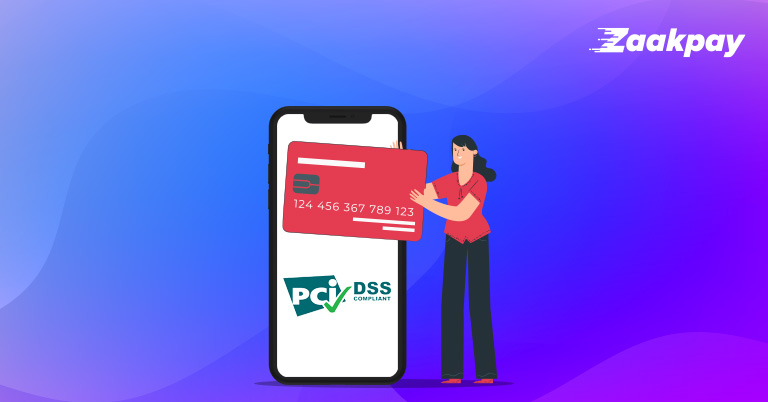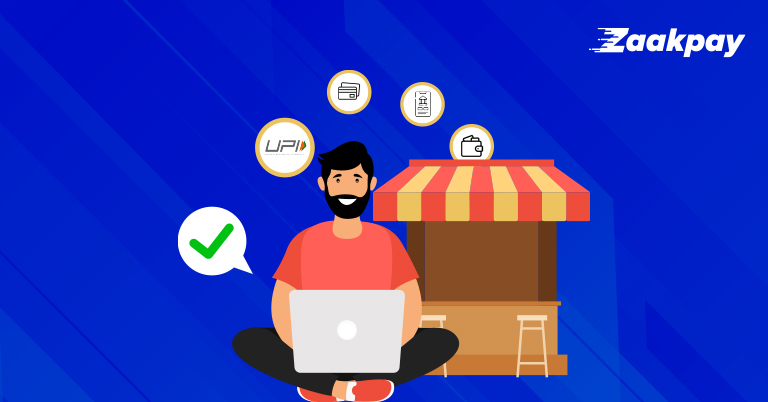Offering a smooth payment experience via a secure payment gateway is the key to converting shoppers into loyal customers and driving recurring sales. This is especially crucial in a market where the customers are extra cautious about their digital safety. A recent study found that 71% of Indian consumers were more concerned about scams and frauds amid the spike in digital payments, especially in the post-Covid world.
With a rise in digital payment trends, there has been an ever-increasing risk of cyber-attacks and data theft. The theft of sensitive payment information like credit card numbers and CVVs can lead to massive losses for the merchant and the customer. Thus, a secure payment gateway has been the need of the hour to protect the merchant’s interest.
PCI DSS compliance is one such way that utilizes techniques like tokenization and encryption to safeguard the personal information of the customers.
What is PCI DSS Compliance?
Payments Card Industry Data Security Standard or PCI DSS is a set of global regulations that protects the customer’s sensitive payment information during a transaction. All reliable payment gateways like Zaakpay are PCI DSS compliant, primarily used to accept credit card payments. In fact, in 2006, major credit brands like MasterCard, VISA, and American Express roped in other brands to create the regulations. Today, all major payment services like Zaakpay support compliance to offer maximum security to the customers.
Why does my business need PCI DSS compliance?
Businesses need PCI DSS compliance to ensure safe online transactions and protect their systems from security thefts. Miscreants often attempt to break into sensitive user data that includes card numbers, account holder’s name, and CVVs to access their account details. PCI DSS uses merchant tokenization, a technology that tokenizes sensitive information in random characters that no one can encrypt but the payment processor.
Why is PCI DSS Compliance Important?
- Negligible Chances of Data Breach
With PCI DSS compliance norms being met, potential data breaches reduce significantly with the payment system becoming more secure through card tokenization. The chances of suffering a data breach reduce drastically as a result.
- Increased Sales
A secure system induces confidence within potential customers who are otherwise skeptical about sharing sensitive information on payment gateways during checkout. Simply put, card tokenization helps drive conversion cycles and prevents losing out on potential leads.
- Avoid Losses
Data breaches can lead to major losses for the business. They might have to face legal complications and pay compensations to the bereaved customers, often followed by loss of customers. They seldom return to a business that led to the theft of their payment information. Tokenization can be critical to avoiding all such losses.
- Enhanced Goodwill
The Goodwill of any business is directly associated with the experience it provides the customers. With positive goodwill in the market, a business can expand in multi-folds while generating more customer awareness. A robust security system that protects their customer’s information is a step towards a solid customer experience. A cyber-attack, on the other hand, can negatively impact the goodwill of a company.
PCI Compliance Requirements and Levels
Depending on the volume of transactions processed by the credit card payment gateway, all transactions would fall into one of the four PCI compliance levels. A business must pass a certain extent of security validation for the PCI DSS assessment.
| Level | Annual Volume of Transaction |
| 1 | Over 6 million |
| 2 | 1 to 6 million |
| 3 | 20,000 to 1 million |
| 4 | Less than 20,000 |
While compliance levels 2, 3, and 4 can be achieved by submitting an Annual Self – Assessment Questionnaire, level 1 compliance is granted to a business after rigorous internal audits conducted by a relevant Quality Security Assessor.
What are the 6 PCI DSS compliance checklists?
As part of PCI DSS compliance, merchants must adhere to the following credit card payment gateway guidelines.
Section 1: Maintain a secure network
- They must install a firewall system to protect the card holder’s data. Doing this will safeguard them against DDoS attacks, SQL injections, and malicious activities.
- System passwords and security credentials that are publicly available must be changed immediately after takeover. This is because fraudsters can have easy access to systems that use them to accept credit card payments.
Section 2: Protect Cardholder’s Data
- Encryption and tokenization payment must be used when transmitting card information through open and public networks. They are easy targets for hackers, and protection of this data is essential.
Section 3 – Have a Vulnerability Management Program in place
- Antivirus programs must be periodically updated to combat viruses, trojans, and other malicious codes.
- Secure systems and applications must be periodically developed and maintained by checking the system for any vulnerability or loophole. Any issues, if found, must be addressed immediately to ensure a secure payment gateway.
Section 4 – Use Strong Access Control Measures
- Access to the cardholder data must be limited to a need-to-know basis only.
- Access to the systems must be through unique identifiers, which must be authenticated to create a proper log of all actions.
- Physical access to the servers that store data must also be restricted.
Section 5 – Monitor & Test Networks Regularly
- Access to all network resources must be appropriately logged and tracked.
- Security systems and procedures like merchant tokenization must be tested quarterly.
Section 6 – Use an Information Security Policy
- A policy that addresses information security protocols for all employees must be kept in place and enforced into the system.
Conclusion
Opting for a gateway that is PCI DSS compliant is a must in today’s world. Realizing the importance of security, Zaakpay has equipped all its servers to comply with these regulations. Advanced technologies like tokenization payment and encryptions form the base of Zaakpay’s arsenal to combat fraud and data theft and offer several other security features. Merchants can offer a unique and secure payment experience to their customers by opting for Zaakpay.
Follow Us on:

